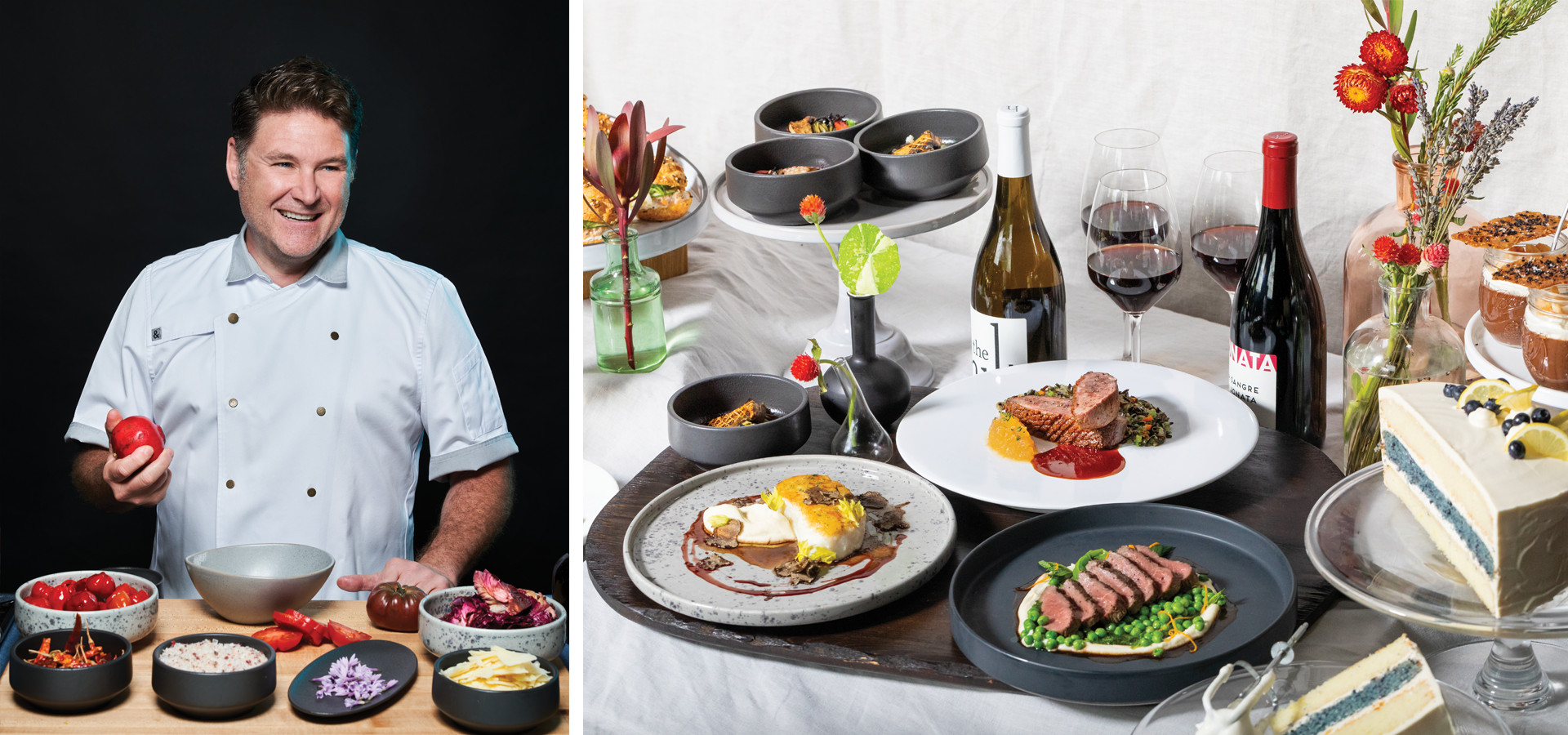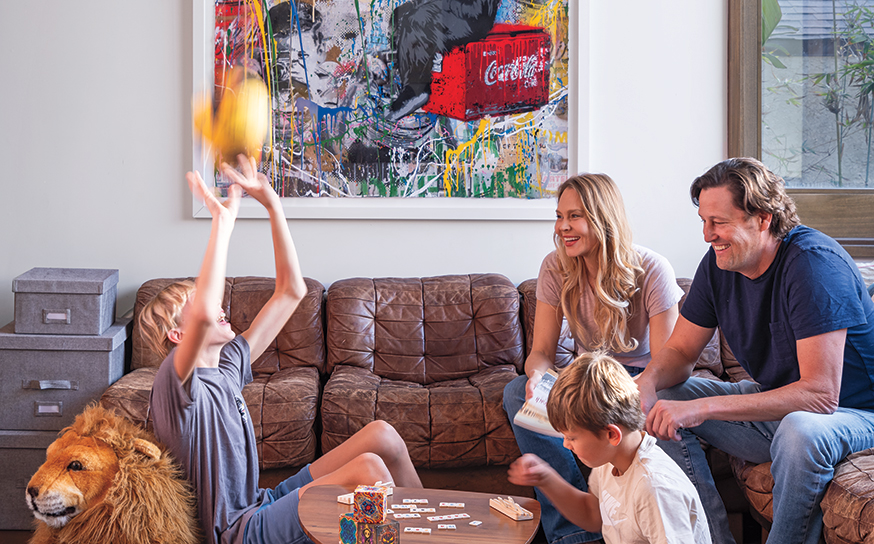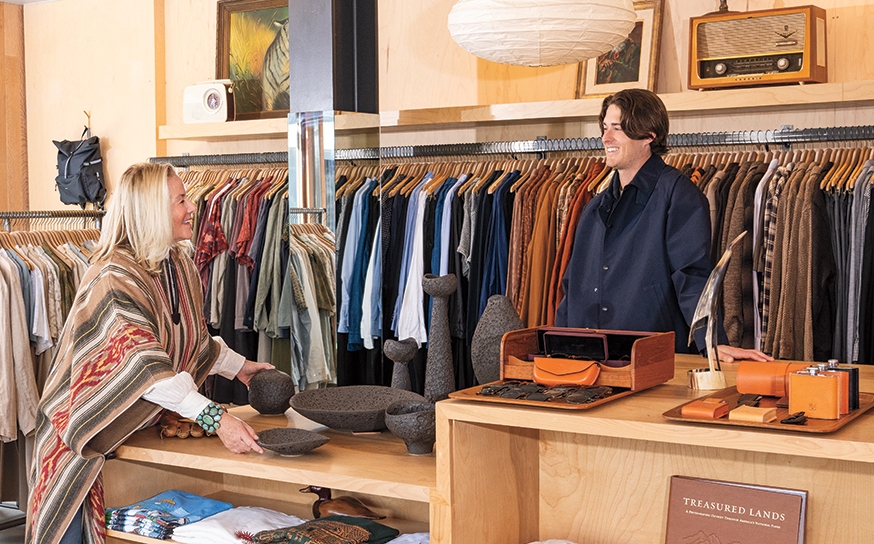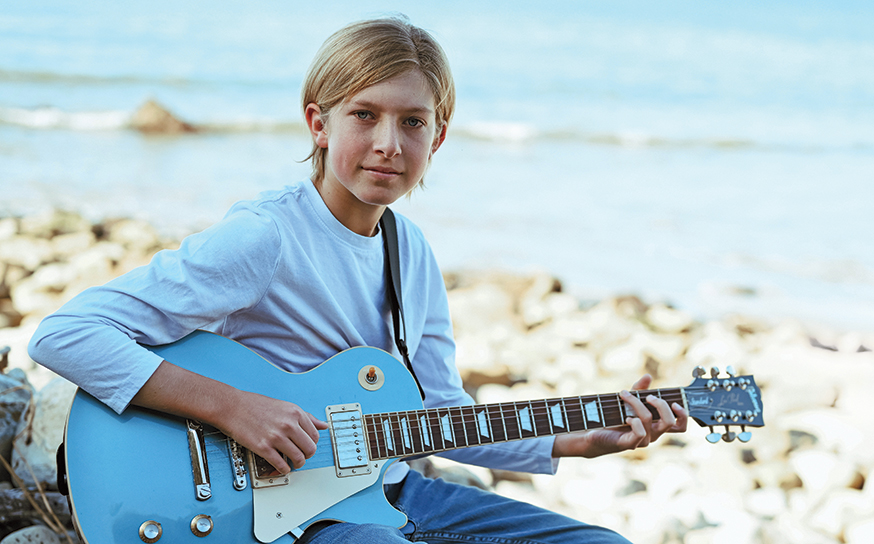Chef David Lefevre is Bringing the Experience of His Famed Restaurants Directly to You
Chef’s table.
- CategoryEat & Drink, People
- Written byAmber Klinck
- Photographed byShane O’Donnell
The origin of a person’s passion can be hard to pinpoint. Translate that passion into success, and you’re one of the lucky ones. For celebrated chef and restaurateur David LeFevre, there wasn’t just one thing that drew him to the kitchen.
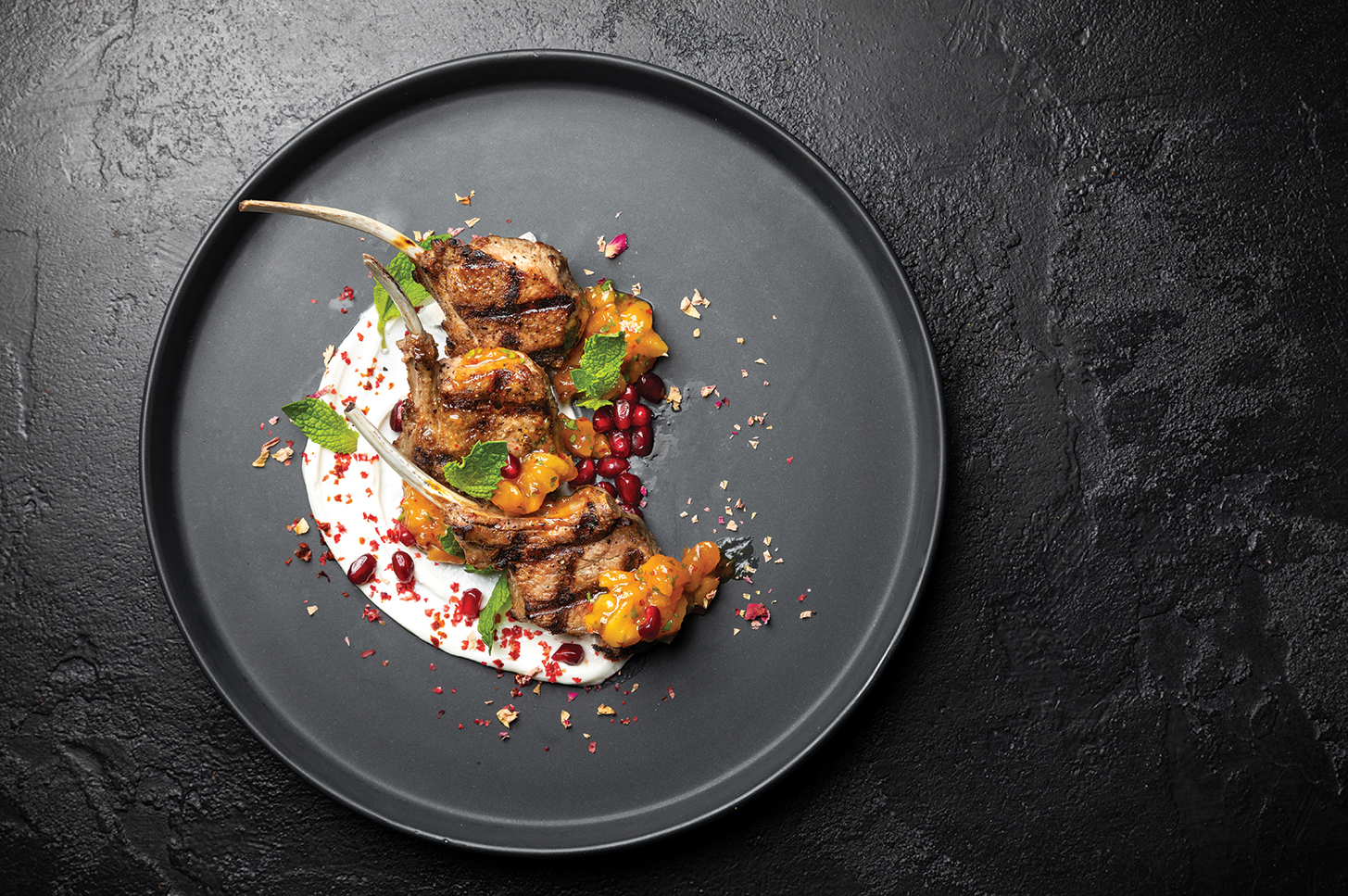
“The quality of food, the service, the recipes, the soulful, artisanal, handcrafted feel of my restaurants—we wanted to bring that to your home, event, wedding, whatever it is.”
Growing up with working parents, the latchkey kid learned how to prepare food for himself in the afternoon. Family mealtime at David’s home meant everyone participated—whether they were setting the table, sweeping the floor or doing the dishes. When his mother cooked, David stayed close to her side—curious and observant, taking note of the little things she did.
“But what really hooked me was when I cooked for someone else,” David notes. “Seeing how much joy and wonder they got from it. It was a way for me to make people happy.”
Like many high school kids, David found part-time work in restaurants. “When I was 14, I was a dishwasher. At 15, I was a busser, and at 16, I spent the summer cooking.” At 17, David was even briefly allowed to tend bar, “which was totally illegal, but what a great job to have at 17,” he says with a smile.
Even though he loved to cook and seemed to gravitate toward the restaurant world, David was encouraged to put his energy elsewhere. “Most of my high school counselors were like, ‘You’re really good at math and science. Be an engineer.’”
So that was the plan. David enrolled in the industrial engineering program at the University of Wisconsin. But it didn’t take long for him to realize that was not where he belonged. He needed a change. He took a chance, withdrew from engineering school and applied to the Culinary Institute of America (CIA) in New York.
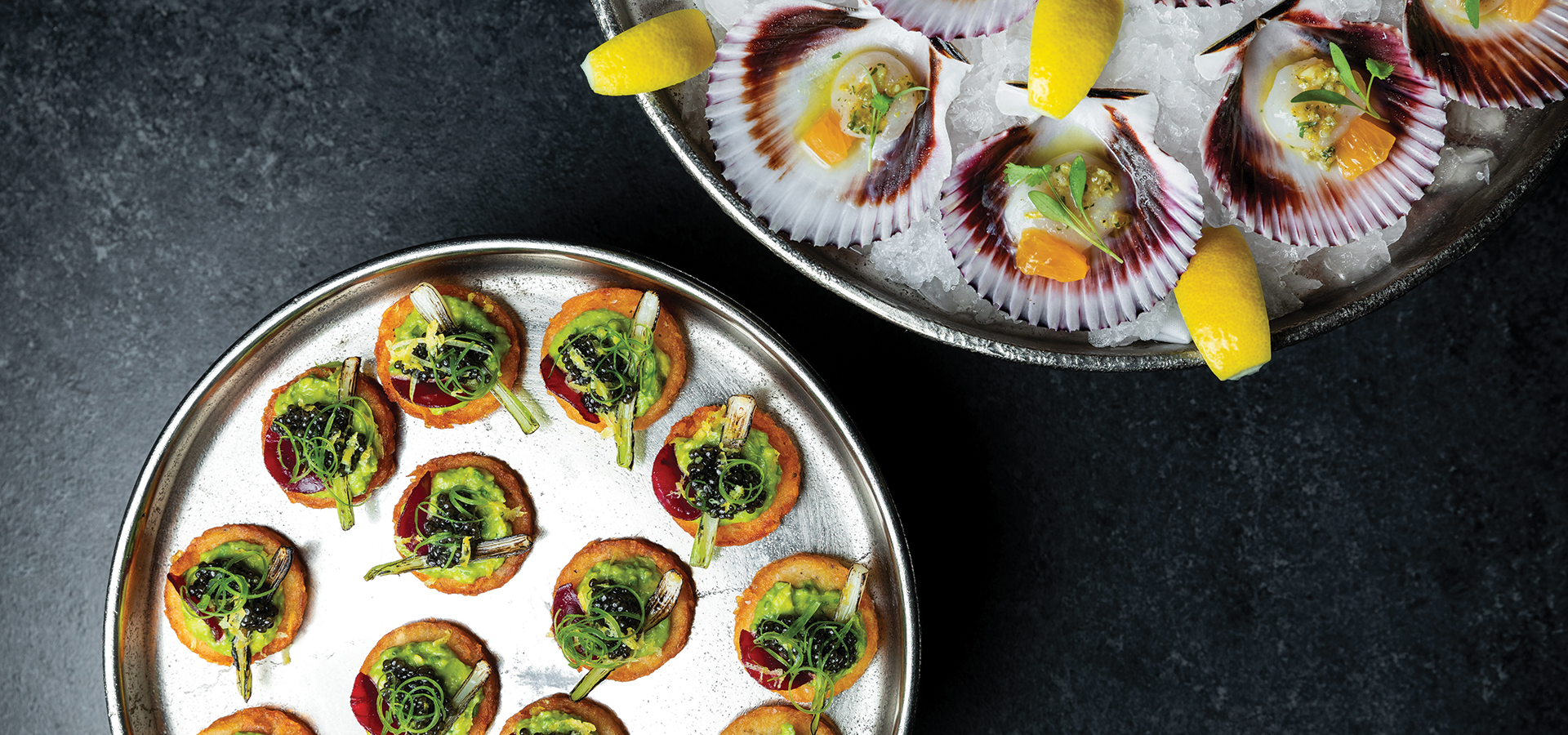
“And it worked out,” he shares. “I was in an environment that I loved and that I was passionate about.”
The work was hard, but David was all in and about to get an opportunity that would change the trajectory of his career. While attending CIA, he applied for a coveted position: an apprenticeship at Charlie Trotter’s, the famed Chicago-based restaurant owned by the American chef and restaurateur of the same name.
The apprenticeship was unpaid with a heavy workload—roughly 70 to 80 hours a week. In addition to the draw of working for a rising culinary star like Charlie, David appreciated that the restaurant was closed on Sundays and Mondays—guaranteeing two consecutive days off.
“My mother was sick. She was in the hospital in Madison, Wisconsin, and I would need the time off to drive from Chicago to Madison to visit her,” David explains. Before he decided on which apprenticeship to take, David visited his mother and they discussed his options. She noticed something about her son. “She said, ‘Wow, your eyes really light up when you talk about Charlie Trotter’s versus the others.’ That was the last conversation I had with my mom—determining that job.”
David’s mother passed before he started his apprenticeship. Only 20 at the time, he felt enormous pressure to succeed after the loss. The work he put in while apprenticing at Charlie’s did not go unnoticed.
When he was back attending classes at CIA—three months away from graduating—he got a call he’ll never forget. “In the middle of class the phone rang during the lecture,” David says. “There were probably 100 students. The instructor picked up the phone and addressed the class: ‘Is there a David LeFevre in the hall?’ I raised my hand, and he said, ‘Charlie Trotter’s on the phone for you.’”
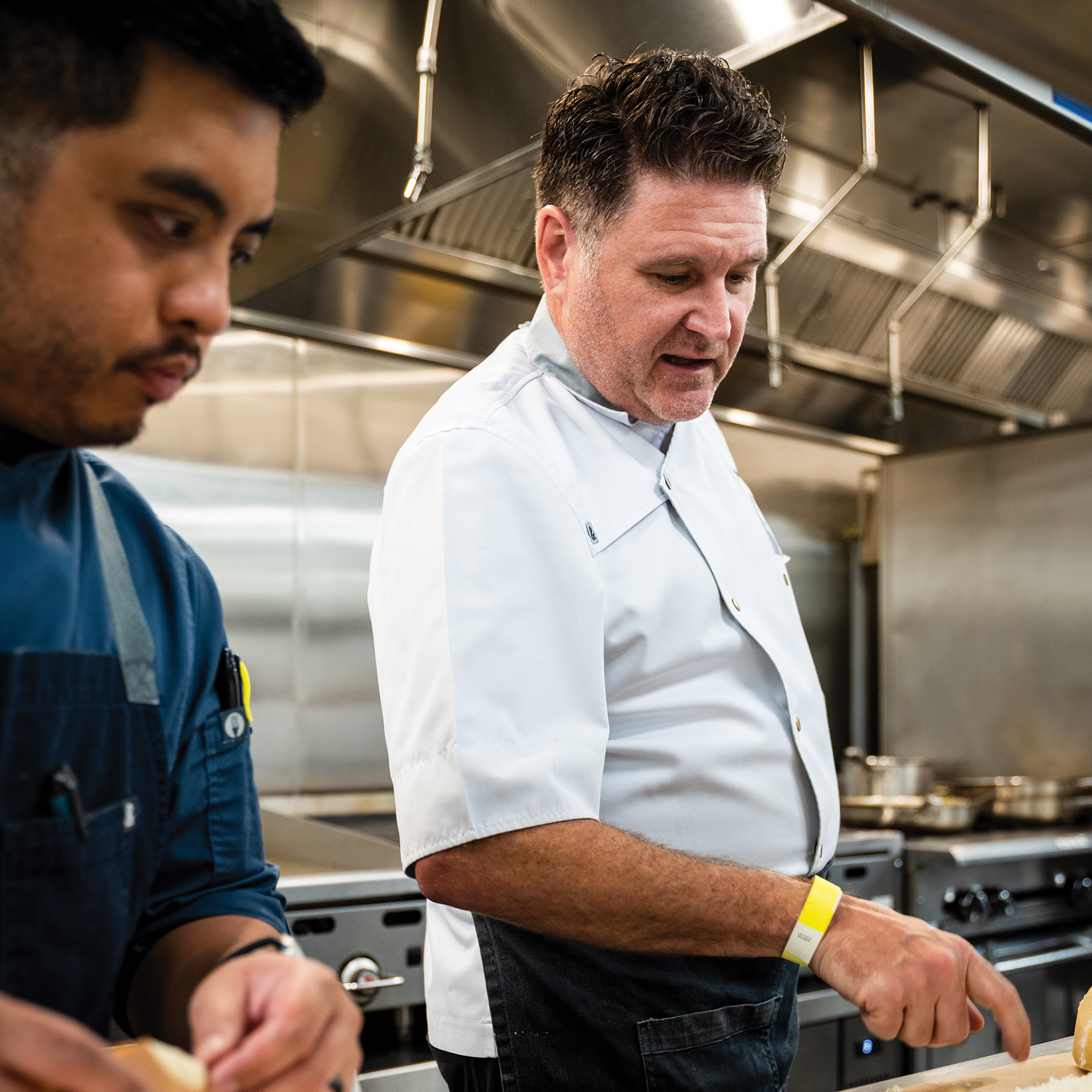
Charlie was opening a restaurant in Las Vegas and wanted David to be part of his opening team. David jumped at the chance and spent a year working in Vegas. The restaurant was a bit ahead of its time, but the experience was invaluable. It was not the last time David would work for Charlie.
Inspired by the prominent chefs of the time, David decided he needed to broaden his experience. “Any chef during the ’90s who was making their way in the world had worked in France—whether it was Jean-Georges Vongerichten, Daniel Boulud, Thomas Keller—they’d all worked in France.” David wanted to add his name to that list.
The plan was to go for four months. He ended up staying a year and a half. When he returned to the States, David went back to work in Chicago as a sous chef at Charlie Trotter’s.
“I met all these amazing chefs from around the world, and then right before my 30th birthday I decided to start traveling again.” At hotels across the globe, David created exclusive menus for events lasting anywhere from one day to two weeks. “I was doing what you would call a pop-up, but at the time they didn’t exist.”
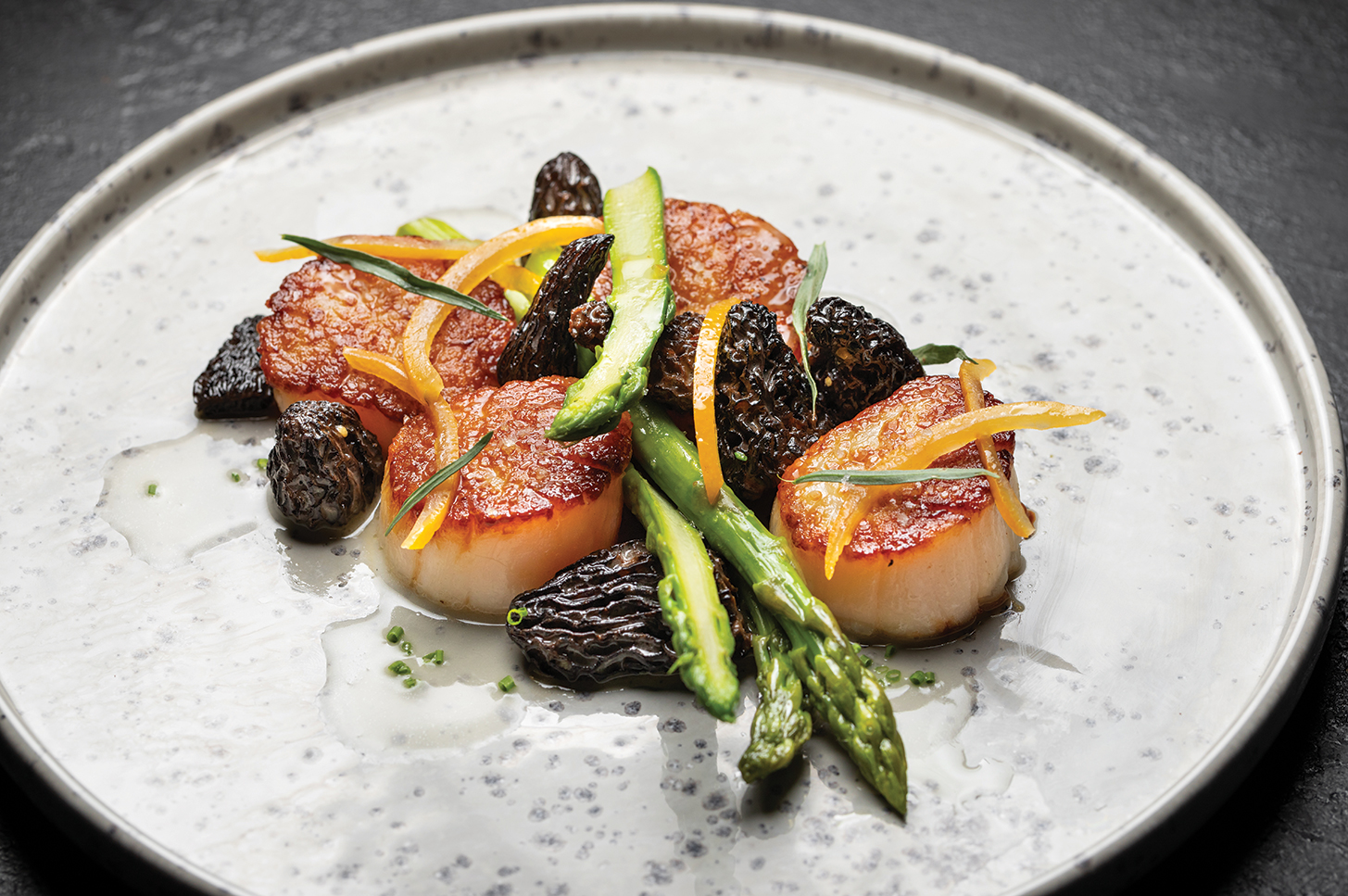
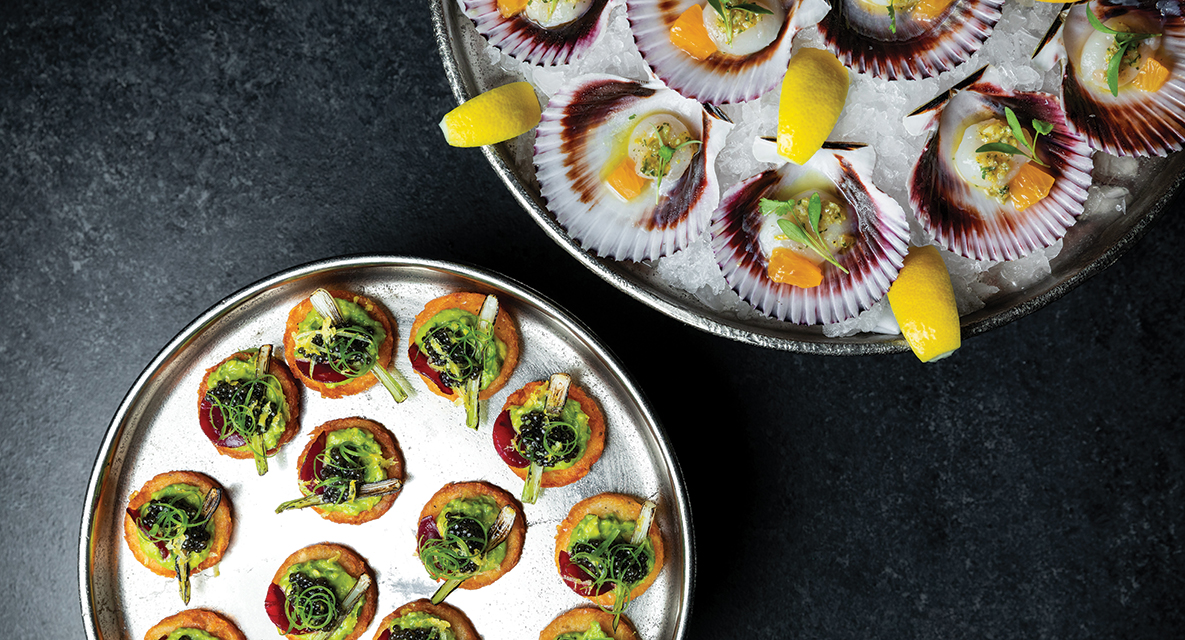
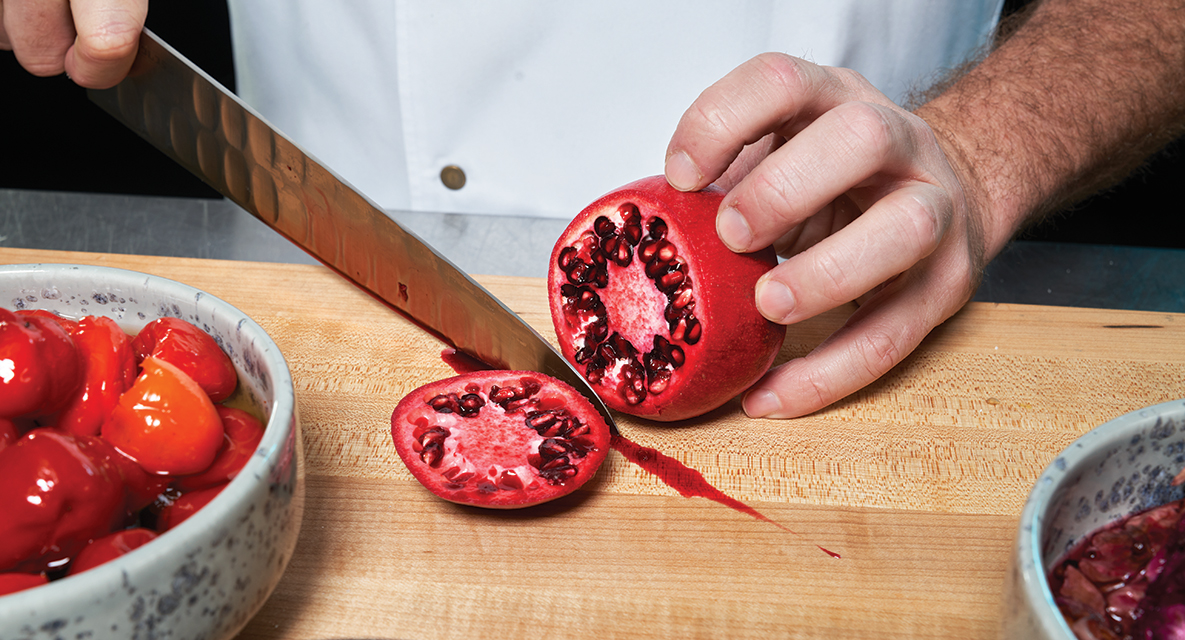
At the Mandarin Oriental in Kuala Lumpur, the Conrad Hotel in Bangkok, the Fullerton Hotel in Singapore and the Hotel Seiyo Ginza in Tokyo, David curated menus. In between events he would travel as much as he could, often taking unpaid work to get the experience of cooking new and unfamiliar cuisine. One day David would be a highly celebrated chef promoting an exclusive menu, and another day he might be working in a kitchen for free—“the lowest on the totem pole,” he notes.
David traveled and worked like this for two years before teaming up with Charlie again for an opportunity in Cabo San Lucas. From there, he was recruited as the executive chef for the Water Grill in Downtown Los Angeles. During David’s six years there, the restaurant earned a Michelin star not once but twice.
Things were going well professionally for David, but a buddy of his who lived in Manhattan Beach kept urging the young, single chef to give the South Bay a try. “I remember crossing PCH and seeing the ocean,” David says. “I moved here a month later, and I’ve been here ever since.”
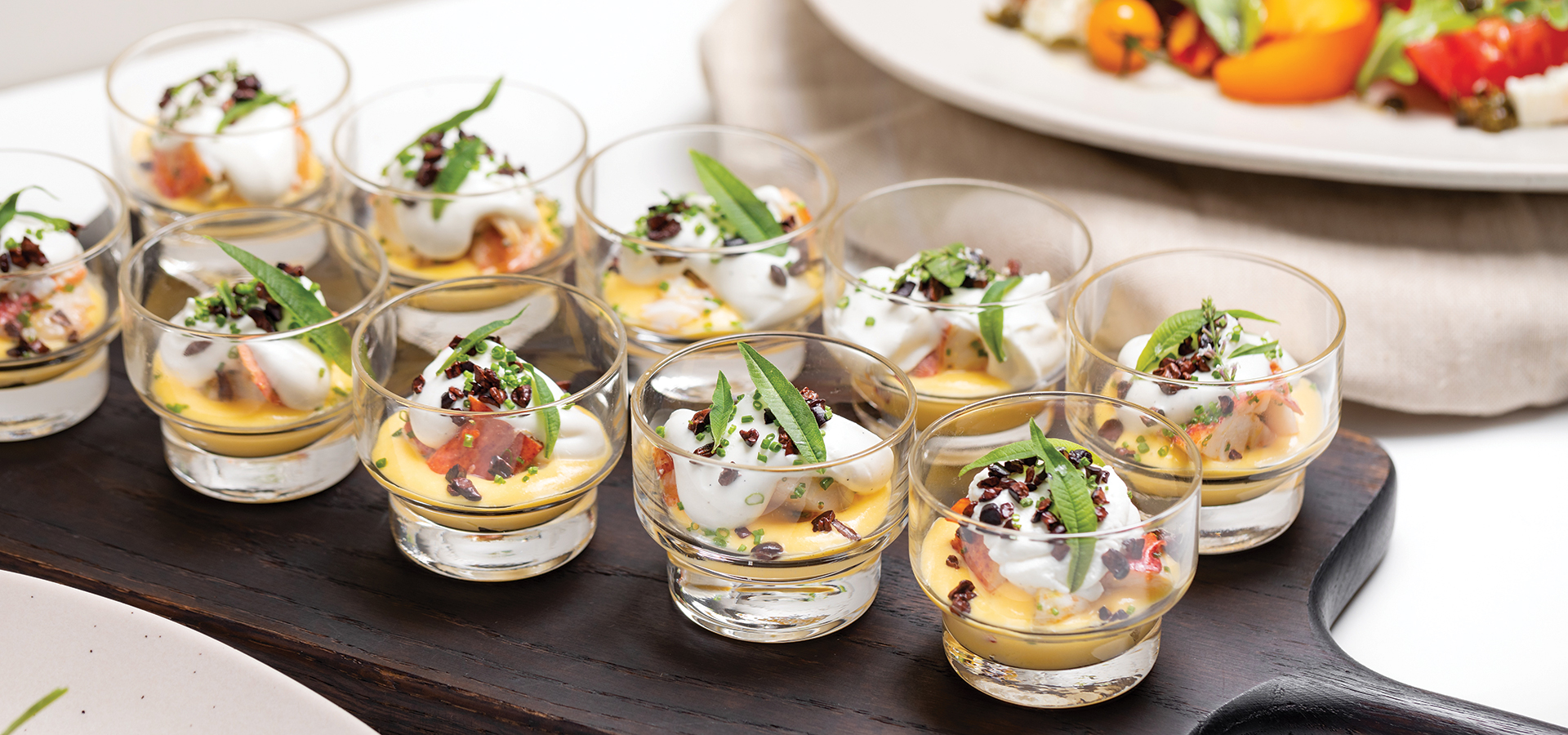
Clearly the South Bay made a big impression on him. But he would make an impact on the Beach Cities as well with the opening of three restaurants that changed the way foodies view Manhattan Beach as a dining destination.
In 2011 David opened Manhattan Beach Post with partners Chris Simms, Mike Simms and Tom Simms. The same team opened Fishing with Dynamite in 2013 and The Arthur J in 2015. All three restaurants are in the heart of Manhattan Beach.
“Last year we got to open RYLA in Hermosa Beach,” David says. “That was probably one of the proudest moments in my career because it’s with Ray Hayashi, who’s worked with us for 10 years. Ray is incredibly talented, he’s an incredible chef, and he’s a great leader.”
For private gatherings big and small, David founded Local LA Catering & Events, which brings the experiences people enjoy most in his restaurants to their table. “We wanted to provide incredible food and beverage service for catering events all through Southern California,” David says. “The quality of food, the service, the recipes, the soulful, artisanal, handcrafted feel of my restaurants—we wanted to bring that to your home, event, wedding, whatever it is.”
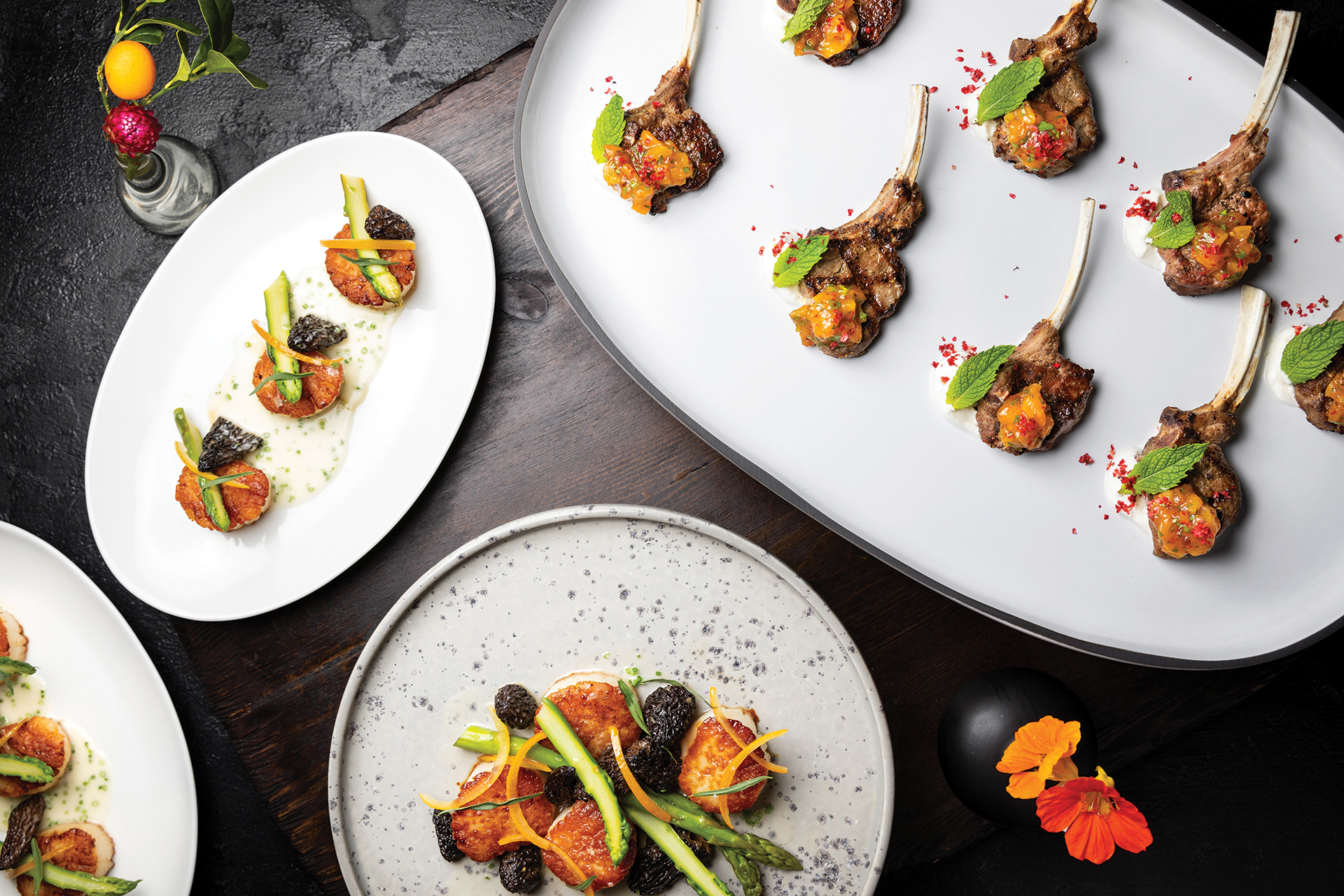
Local LA has also catered events in Santa Barbara, Santa Ynez, San Diego and Texas. “We did the food and beverage for a rocket company,” David notes. “Fourteen years ago, if you asked if I was going to be catering for rocket launches, I definitely would have said no!”
When he’s not working, David and his wife, KC LeFevre, enjoy spoiling their dog, Rocky—a sweet rescue pup David describes as calm and just the perfect pet. “We love going to the beach, riding bikes and going out to dinner,” he says.
And cooking together. David loves making people happy with his food, but he also loves it when people cook for him. Which might sound intimidating, but not for KC.x`






